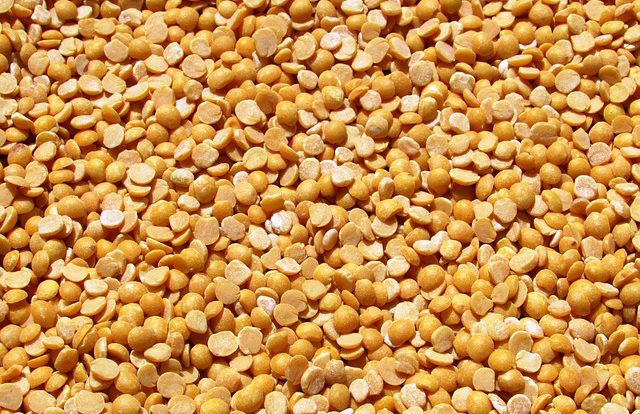Cargill has made an undisclosed investment in PURIS, the largest pea protein producer in North America, and the two companies have created a joint venture to accelerate the production of plant-based food.
This is the latest move by Cargill reflecting its increasing focus toward the emerging plant protein market. Throughout 2016 and 2017, Cargill sold off its U.S. feedyards – selling its sites in Bovina and Dalhart, Texas to Friona Industries in July 2016, and then selling its feedyards in Leoti, Kansas and Yuma, Colorado to Green Plains Inc. in May 2017.
At the time, John Keating, president of Cargill’s Wichita-based protein business operations and supply chain, said, “We are committed to being the leading protein provider that nourishes people, animals and the planet in a safe, responsible and sustainable way while exceeding the expectations of our customers.”
This pivot toward greater sustainability and plant-based food systems continued in July 2017 when Cargill announced it had entered into a strategic partnership with Austria-based Delacon – the pioneering global leader in phytogenic (plant-based) feed additives – through an unspecified minority equity investment.
Driven by shifting consumer preferences, and a heightened awareness on the part of consumers regarding how livestock are raised and what they are fed, through the tie-up, the two companies are aiming to advance the market presence of natural, plant-based feed additives on the global market.
One month later, in August 2017, Cargill announced its participation in a $17 million Series A for Memphis Meats, a San Francisco-based startup that is developing methods for growing clean meat from animal cells without the need for breeding, raising, or the slaughtering animals.
All of these strategic moves point toward Cargill’s goal of meeting consumers’ desire for alternative sources of protein that offer exceptional taste and transparent labels – something that PURIS is well positioned to facilitate.
“PURIS is a game changer in terms of taste and vertical integration in pea protein,” said David Henstrom, vice president, Cargill Starches, Sweeteners and Texturizers. “Cargill is excited to expand into the emerging pea protein space while continuing to support our conventional agricultural crops. It’s clear that PURIS is in alignment with Cargill’s vision to meet the growing demand for protein globally and to help customers deliver label-friendly products without sacrificing taste.”
The New Reality
The deepening of the connection between consumers and their food supply chains, along with a rising popularity of veganism, concerns over animal rights, and awareness around the hormones, antibiotic usage, and unsustainability inherent in the global livestock industry have pushed many people to look toward alternative ways to get protein into their diet.
Global protein consumption is expected to climb at a compounded annual growth rate (CAGR) of 1.7 percent, reaching 943 million tons by 2054, according to Lux Research. Over this same time period, alternative protein sources are forecast to command up to a third of the protein market as they fill the void created by slowing growth in meat and seafood production, and demand shifts within the consumer market.
This wave of preference for plant-based proteins by consumers, combined with a deepening knowledge about the food supply chain, has resulted in consumers not only wanting more plant-based proteins in their own diets, but in the diet of the chickens that lay their eggs, and the livestock that are raised for consumption.
“…the growing ranks of novel protein sources and potential replacements appeal to the everyday consumer foreshadowing a profoundly changed marketplace in which what was formerly ‘alternative’ could take over the mainstream,” states the Global Food and Drink Trends Report 2016 issued by Mintel.
Queen Pea
In the overall alternative protein category, pea protein has rapidly gained popularity. Extracted from ground yellow split peas, unlike soy or whey, pea protein is not a allergen, is non-GMO, is gluten-free, vegan, kosher, and is comparatively more environmentally friendly than other protein sources. Pea protein is also cholesterol-free, helps control blood pressure, provides a feeling of satiety, and is an effective source of protein for muscle building.
Given this list of benefits, the number of companies integrating pea protein into their products has soared by 195 percent between 2013 and 2016, reports Food Dive.
Under the structure of the joint venture between Cargill and PURIS, PURIS’ plans to establish a second production site in the U.S., according to Food Navigator, which will in turn enable the company to grow into being a global supplier.
“With Cargill’s support, our plant-based ingredients become available to customers and consumers on a global scale,” said Tyler Lorenzen, president of PURIS. “Our founder set out to feed the world in 1986. Now it’s coming true.”
-Lynda Kiernan

